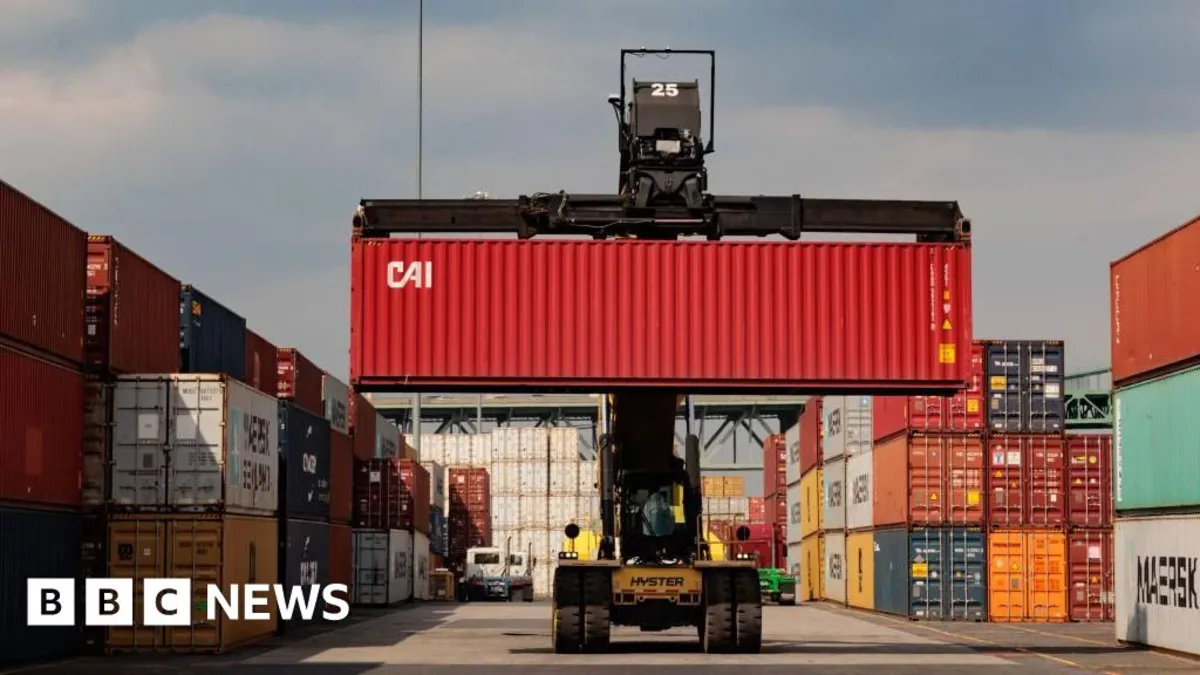
US President Donald Trump has announced a strategic initiative to impose custom tariffs on exports from countries that maintain what he considers unfair trade practices towards the United States. This move aims to bolster American manufacturing and investment by leveling the international trade playing field.
On Thursday, President Trump signed a memorandum instructing his team to develop tailored tariffs for each country. These tariffs will consider various factors such as current tariffs, exchange rates, trade balances, and other regulatory frameworks. The White House emphasized that while tariffs are a concern, they are not necessarily the biggest issue, specifically pointing out the European Union’s policies that purportedly disadvantage US exporters.
The announcement is expected to instigate global trade discussions as the US seeks to address these perceived imbalances.
The memorandum directs staff to deliver a comprehensive plan for reciprocal trade and tariffs within 180 days. Howard Lutnick, Trump's nominee for Commerce Secretary, indicated that the plan is slated for completion by April 1.
President Trump framed these "reciprocal tariffs" as a means to attract investment and enhance manufacturing within the US. He stated, "If you build your product in the United States, there are no tariffs," emphasizing fairness in trade relations.
Countries likely to be affected include the European Union, India, Vietnam, and Thailand, all of which have relatively higher tariffs and depend significantly on the US market. The announcement coincides with a meeting with Indian Prime Minister Narendra Modi, who has already initiated steps to reduce tariffs on key items such as motorcycles.
Furthermore, Thailand and Vietnam have indicated a reevaluation of their trade policies with the US following the announcement.
A tariff is essentially a tax on imports, paid by the importing company. Countries often use tariffs to shield specific industries from international competition. Historically, the US has advocated for free trade, maintaining low tariffs overall, with exceptions for certain products like footwear, steel, and aluminum.
The White House highlighted disparities such as the 10% tariff on US-made cars in Europe versus the 2.5% duty the US imposes on European vehicles. Similar concerns were raised about Brazil's 18% tariff on ethanol imports compared to the US's 2.5%.
Beyond traditional tariffs, the US aims to challenge policies like digital services taxes in countries including Canada and the UK, which target US-based tech giants, and Europe's Value Added Tax (VAT) rules.
President Trump’s announcement follows a series of tariff-related actions, including a 25% import tax on steel and aluminum and increased tariffs on Chinese goods. These measures have caused a stir on Wall Street, although markets responded positively to the absence of immediate new tariffs.
John Cassidy of Red Cedar Investment Management noted that while tariffs introduced in Trump's first term had a limited economic impact, the ongoing trade tensions could escalate further.
Conversely, economist Alex Durante from the Tax Foundation expressed skepticism, suggesting that tariffs might not be the optimal solution for trade grievances due to potential costs and retaliatory risks.
Despite Trump's dismissal of possible economic fallout, surveys indicate public concern over the potential for tariffs to increase living costs. A Marquette Law School poll revealed that only 24% of respondents believe tariffs will benefit the US economy.
Charles Franklin, director of the poll, highlighted the challenge of selling the fairness argument when faced with the prospect of rising prices.
Reporting contributed by Tom Espiner